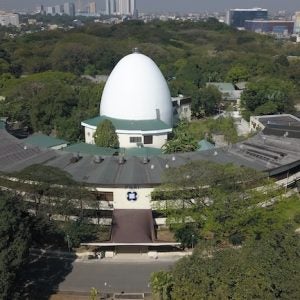 Russia’s State Duma parliament on 25 November ratified a five-year extension of the €10 billion ($11.3m) Hungarian state loan for the construction of the Paks II two-unit nuclear power plant. The Duma ratified the protocol amending the 2014 agreement between the governments of the Russian Federation and Hungary on the provision the loan (the protocol was signed in Moscow and Budapest in May).
Russia’s State Duma parliament on 25 November ratified a five-year extension of the €10 billion ($11.3m) Hungarian state loan for the construction of the Paks II two-unit nuclear power plant. The Duma ratified the protocol amending the 2014 agreement between the governments of the Russian Federation and Hungary on the provision the loan (the protocol was signed in Moscow and Budapest in May).
As of May 2021, Hungary has used loan proceeds totalling €320.4 million. Because of a significant delay in the start of NPP construction due to the protracted procedure for obtaining approval from the European Commission for the project, Hungary in January 2020 applied to the Russian Ministry of Finance with a request to extend the loan use period by five years (until the end of 2030) and postpone the start of repayment on the principal debt on the loan from 2026 to 2031, while keeping the final maturity of the loan unchanged (15 September 2046).
Rosatom, has agreed on the changes to the NPP construction schedule and in May 2021, an intergovernmental protocol was signed which agreed to Hungary’s requested amendments. However, to ensure the interests of Russia as a creditor, the protocol included a provision obliging Hungary to repay the current debt in the amount of €72.7 million no later than 30 April, 2021 and to pay interest accrued on this amount as of the date of repayment. This obligation was fulfilled by Hungary before the protocol was signed. In addition, the protocol provides for a provision on the possibility for the parties, at the initiative of the borrower, to agree on a decrease in the previously agreed amount of the annual use of the loan.
The Paks II project was launched in 2014 by an inter-governmental agreement between Hungary and Russia for two VVER-1200 reactors to be supplied by Rosatom. The contract was supported by a Russian state loan to finance the majority of the project. The Hungarian Atomic Energy Authority (HAEA) issued a site licence for Paks II in March 2017 and approval also came from the European Commission that the new plant's effects on competition would be acceptable, subject to certain commitments by the Hungarian government. Preparatory groundwork began this year, following receipt of a specific licence from HAEA. After some delays, a construction licence is expected soon following reorganisation of the HAEA.
Photo: Hungary's proposed Paks II nuclear power plant






